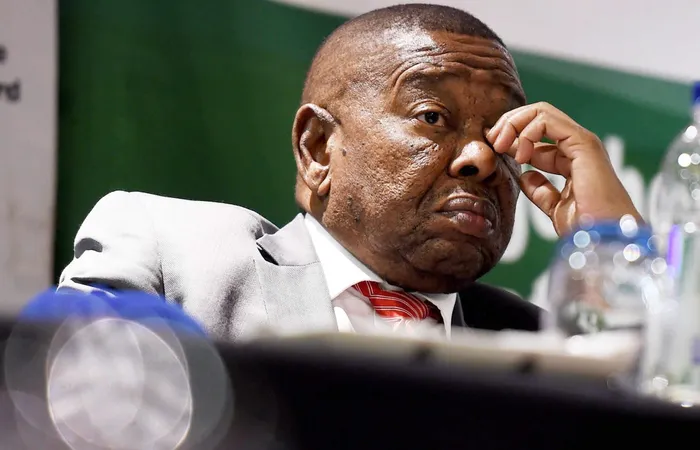Time for education training authorities and minister to be held accountable

Nzimande is turning a blind eye to this irregular expense. For that, he should be held accountable, says the writer.
Edwin Naidu
Cape Town - South Africa’s Sector Education Training Authorities (Setas) collectively control billions of rand.
Some are doing a great job. Others are pathetic, squandering millions without showing much to email home about.
One of Africa’s education and training routes is driven by the UN Environmental Programme through its Africa Environmental Education and Training Action Plan 2015-2024, aimed at strengthening sustainable development on the continent.
While the jury is out on how the plan is proceeding, one has yet to understand how Setas are positively transforming the skills landscape for the better in South Africa.
Yet, they have an opportunity to bring about dramatic change, per the government’s wishes, via Minister of Higher Education, Science and Innovation Dr Blade Nzimande, South Africa’s key champion in this regard.
And there are lessons for the continent on how to get it right to ensure education and training achieve their transformative targets for Africa.
But the signs that Nzimande has a firm grip on Setas are not convincing after it emerged that the Services Seta, Construction Seta and the National Skills Fund were top contributors to the irregular expenditure balance in the past year, according to the Auditor-General of South Africa in a Parliament briefing on October 12.
The National Skills Fund, which Nzimande is accused of shielding by withholding a damning report on its shenanigans, is responsible for irregular expenditure to the tune of R1.3 billion.
The Services Seta (SSeta) has not accounted for R138 million. The Transport Education and Training Authority (Teta) cannot explain what happened to R92m. Similarly, the Construction Education and Training Authority (Ceta) can’t explain its missing R76m.
In contrast, the Local Government Sector Education and Training Authority (LG Seta) has unaccounted for R46 million. That is more than R1.6bn from just five of SA’s 21 Setas.
As their political head, has the former boss of the SA Communist Party disciplined them? Nobody has been suspended, arrested or convicted for these irregular expenses.
In its report, the AG-SA said this indicates that consequence management is inadequate in these entities and employees are not held accountable for transgressions.
Nzimande is turning a blind eye to this irregular expense. For that, he should be held accountable.
Someone in the National Treasury should follow the money!
This is where you expect leadership from President Cyril Ramaphosa in asking his Cabinet minister why such failings have been allowed to fester.
According to the AG-SA, it is still a concern that the National Skills Fund has not addressed the deficiencies noted around the skills development funding as the entity was qualified on skills development funding and accruals from non-exchange transactions.
The absence of adequate project management and expenditure approval processes continues to be a challenge at the institution, as communicated in past audit cycles.
Setas are failing to address skills development adequately. Government officials must account for every cent.
If they cannot spend millions (more than a billion in the case of NSF), South Africans must be told why money set aside to train young people cannot be accounted for.
Otherwise, it becomes hard not to find merit in the assertions on virtual corridors that the heads of Setas have a private arrangement to contribute a portion of their fat salaries to a slush fund controlled by Nzimande.
That may explain why he doesn’t deal with the inept dross under his watch. But if Nzimande does not have the balls, his political boss, the equally docile Ramaphosa, should hold him accountable. But does he care? One is tempted to say, Ask Angie.
With 47% of children dropping out of the system, it beggars belief that this is not deemed a crisis.
Naidu is a journalist and communications expert. He also heads up Higher Education Media Services.
Cape Times
Related Topics: